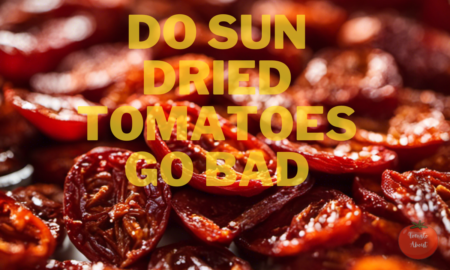If you’re an avid gardener or simply someone who loves the taste of fresh, juicy tomatoes, you’ve come to the right place. Growing tomatoes is a rewarding experience, but it all starts with choosing the right soil. The quality of your soil plays an important role in determining the health, vigor, and yield of your tomato plants. With so many options available, it can be overwhelming to decide which soil is best suited for your tomato garden. Fear not, because we’ve done the legwork for you and compiled a list of the seven best soils for tomatoes.
In this comprehensive guide, we’ll explore the key factors to consider when selecting soil for your tomato plants, as well as provide in-depth reviews of our top picks. From nutrient-rich potting mixes to well-draining garden soils, we’ve got you covered. Get ready to unlock the secrets to a bountiful tomato harvest with our expert recommendations.
Why Soil Matters for Tomatoes?
Before we dive into our topsoil picks, let’s understand why choosing the right soil is so important for tomato plants. Tomatoes are heavy feeders, meaning they require nutrient-rich soil to thrive. The soil not only provides essential nutrients but also affects crucial factors such as moisture retention, drainage, and aeration.
Poorly draining soil can lead to root rot, stunted growth, and a host of other issues, while overly sandy soil may struggle to retain moisture and nutrients. Finding the perfect balance is key to ensuring your tomato plants receive the optimal growing conditions they need to flourish.
What Key Factors Do You Need to Consider When Selecting Soil for Tomatoes
When choosing the best soil for your tomato plants, there are several crucial factors to keep in mind:
- Nutrient Content: Tomatoes require a soil rich in nutrients, especially nitrogen, phosphorus, and potassium (NPK). Look for soils specifically formulated for vegetable gardens or those labeled as “tomato blend.”
- pH Level: Tomatoes thrive in slightly acidic soil, with an ideal pH range of 6.0 to 6.8. Soils outside this range can affect nutrient uptake and plant growth.
- Drainage: Proper drainage is essential for tomato plants, as they are susceptible to root rot and other moisture-related issues. Look for well-draining soils or consider amending your existing soil with materials like perlite or coarse sand to improve drainage.
- Organic Matter: Soils rich in organic matter, such as compost or aged manure, provide essential nutrients and improve soil structure, aeration, and water retention.
- Texture: Tomatoes prefer well-aerated, loamy soils with a balanced texture. Avoid overly clay-heavy or sandy soils, as they can pose drainage and nutrient retention issues.
With these factors in mind, let’s dive into our top picks for the best soils for tomatoes.
The 7 Best Soils for Tomatoes
1. Premium Potting Mix
When it comes to growing tomatoes in containers or raised beds, a premium potting mix is a fantastic choice. These mixes are specially formulated to provide the ideal balance of nutrients, moisture retention, and drainage for container-grown plants.
One of the standout features of a high-quality potting mix is its lightweight and well-aerated composition. This allows for optimal root growth and prevents soil compaction, ensuring your tomato plants have easy access to oxygen and water.
Look for potting mixes that contain a blend of nutrient-rich ingredients like compost, peat moss, and vermiculite. These components not only provide essential nutrients but also help maintain the right pH levels for tomato growth, typically between 6.0 and 6.8.
Pros
- Excellent drainage and aeration
- Balanced nutrient content
- Lightweight and easy to handle
- Suitable for containers and raised beds
- Helps prevent soil compaction
Cons
- May require additional fertilization during the growing season
- Can be more expensive than other soil options
Recommended Product: Miracle-Gro Potting Mix (38.8 quarts)
2. Compost-Enriched Garden Soil
For those with an in-ground garden, compost-enriched garden soil is an excellent choice for growing flavorful tomatoes. This type of soil is a blend of high-quality topsoil and nutrient-rich compost, providing a fertile and well-draining foundation for your tomato plants.
Compost, derived from decomposed organic matter, is a powerhouse of essential nutrients like nitrogen, phosphorus, and potassium. It also helps improve soil structure, increasing water retention and aeration, which are crucial for healthy root development.
When selecting compost-enriched garden soil, look for products that have a balanced pH range suitable for tomatoes and a high organic matter content. This will ensure your plants receive the optimal combination of nutrients and moisture throughout the growing season.
Pros
- Nutrient-rich and supports healthy plant growth
- Improves soil structure and water retention
- Provides a balanced pH for tomatoes
- Encourages beneficial soil microorganisms
- Enhances soil fertility over time
Cons
- May require additional fertilization during the growing season
- Heavier than some other soil options, making it less suitable for containers
Recommended Product: Miracle-Gro Garden Soil for Vegetables & Herbs (1.5 cubic feet)
3. Raised Bed Soil Mix
If you’ve invested in raised garden beds, a specialized raised bed soil mix is an excellent choice for your tomato plants. These mixes are designed to provide superior drainage and aeration while still retaining the right amount of moisture and nutrients.
Raised bed soil mixes typically contain a blend of high-quality topsoil, compost, and amendments like perlite or vermiculite. This combination ensures that your tomato plants have access to essential nutrients while preventing waterlogging and root rot.
When selecting a raised bed soil mix, look for products labeled as “well-draining” or “moisture-retentive.” These mixes strike the perfect balance, ensuring your tomato plants receive the optimal growing conditions throughout the season.
Pros
- Excellent drainage and aeration
- Retains moisture and nutrients
- Suitable for raised bed gardening
- Prevents waterlogging and root rot
- Tailored for optimal plant growth
Cons
- May require additional fertilization during the growing season
- Can be more expensive than standard topsoil
Recommended Product: Espoma Raised Bed Soil Mix (8 quarts)
4. Tomato-Specific Soil Mix
For those seeking a tailored solution, tomato-specific soil mixes are an excellent choice. These mixes are formulated with the unique needs of tomato plants in mind, providing the ideal nutrient balance, pH levels, and soil structure for optimal growth and fruit production.
Tomato-specific soil mixes often contain a blend of high-quality topsoil, compost, and amendments like lime or sulfur to adjust the pH to the desired range of 6.0 to 6.8. They may also include slow-release fertilizers to provide a steady supply of nutrients throughout the growing season.
When selecting a tomato-specific soil mix, look for products labeled as “tomato and vegetable” or “tomato-specific.” These mixes are designed to support the growth of healthy, productive tomato plants from seedling to harvest.
Pros
- Tailored to the specific needs of tomato plants
- Balanced nutrient content and pH levels
- May contain slow-release fertilizers
- Promotes healthy growth and fruit production
- Optimized for tomato plant development
Cons
- More expensive than general-purpose soil mixes
- May not be suitable for other plants in your garden
Recommended Product: Burpee Organic Premium Tomato Planting Mix (16 quarts)
5. Mushroom Compost
Mushroom compost is a lesser-known but highly effective soil amendment for growing tomatoes. This nutrient-rich compost is derived from the spent materials used in commercial mushroom cultivation, providing an excellent source of organic matter and beneficial microorganisms.
One of the key benefits of mushroom compost is its ability to improve soil structure and water retention. It also contains a balanced blend of essential nutrients, including nitrogen, phosphorus, and potassium, which are crucial for tomato plant growth and fruit development.
When incorporating mushroom compost into your garden soil, aim for a ratio of approximately one-third compost to two-thirds existing soil. This will ensure your tomato plants receive the benefits of the nutrient-rich compost while maintaining good drainage and aeration.
Pros
- Rich in organic matter and beneficial microorganisms
- Improves soil structure and water retention
- Provides a balanced blend of essential nutrients
- Supports long-term soil health
- Environmentally friendly and sustainable
Cons
- May have an earthy aroma initially
- Availability may be limited in some areas
Recommended Product: Mushroom Compost by Royer’s (40 pounds)
6. Aged Bark or Wood Chip Mulch
While not a traditional soil option, aged bark or wood chip mulch can be an excellent addition to your tomato garden. When incorporated into the soil, this organic material improves drainage, aeration, and moisture retention, creating an ideal environment for tomato plant growth.
As the bark or wood chips decompose, they release valuable nutrients into the soil, providing a slow and steady supply of essential elements like nitrogen, phosphorus, and potassium. This gradual release helps prevent nutrient deficiencies and promotes overall plant health.
When using aged bark or wood chip mulch, it’s best to incorporate it into the top layer of soil, creating a mulch layer of approximately 2-4 inches. This will help suppress weed growth, retain moisture, and gradually enrich the soil as the mulch breaks down over time.
Pros
- Improves soil drainage and aeration
- Gradually releases nutrients as it decomposes
- Suppresses weed growth and retains moisture
- Adds organic matter to the soil
- Helps regulate soil temperatures
Cons
- May initially tie up nitrogen as it decomposes
- Can be acidic, potentially lowering soil pH
Recommended Product: Scotts Nature Scapes Colored Mulch (2 cubic feet)
7. Vermiculite
Vermiculite is a natural mineral that expands when heated, creating a lightweight and highly absorbent soil amendment. While not a complete soil solution on its own, vermiculite can be an excellent addition to your tomato garden soil mix.
One of the primary benefits of vermiculite is its ability to improve soil aeration and drainage. Its porous structure allows for excellent air and water movement, preventing waterlogging and promoting healthy root growth. Additionally, vermiculite helps retain moisture, reducing the need for frequent watering.
When incorporating vermiculite into your tomato garden soil, aim for a ratio of approximately one part vermiculite to four parts soil or potting mix. This balance will ensure your tomato plants receive the benefits of improved aeration and moisture retention without compromising soil structure.
Pros
- Improves soil aeration and drainage
- Helps retain moisture, reducing watering frequency
- Lightweight and easy to incorporate into soil mixes
- Provides aeration and drainage without compacting
- Inert and safe for plants
Cons
- Provides minimal nutrients on its own
- Can be more expensive than some other soil amendments
Recommended Product: Vermiculite Soil Amendment by Wakefield Biochar (8 quarts)
Conclusion
The bottom line is that Choosing the right soil for your tomato plants is a crucial step toward achieving a bountiful and flavorful harvest. Whether you opt for a premium potting mix, compost-enriched garden soil, raised bed mix, or incorporate soil amendments like mushroom compost or vermiculite, the key is to provide your tomato plants with the optimal balance of nutrients, drainage, and aeration.
Anything you want to share, do comment!


